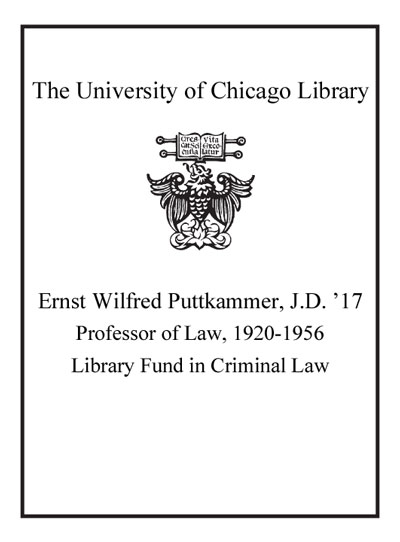New political religions, or, An analysis of modern terrorism /
Saved in:
| Author / Creator: | Cooper, Barry, 1943- |
|---|---|
| Imprint: | Columbia : University of Missouri Press, c2004. |
| Description: | xiii, 242 p. ; 24 cm. |
| Language: | English |
| Series: | Eric Voegelin Institute series in political philosophy |
| Subject: | |
| Format: | Print Book |
| URL for this record: | http://pi.lib.uchicago.edu/1001/cat/bib/5275274 |
Table of Contents:
- Preface
- 1. Context
- The shock of 9/11
- Political science and the study of evil
- Arendt and Voegelin on interpreting totalitarianism
- Contemporary equivalents: hatred of the West
- Law, ideology, and terror
- Terrorism and globalization: the spiritual dimension
- Spiritual disease and violence
- New modes of war
- 2. Concepts
- Terrorism defined
- The tradition of publicity
- Terrorist consciousness: limited ritual murder
- Instrumental but limitless political murder
- The problem of altruism
- Pneumopathology defined
- Imagination and "Second Reality"
- The refusal to apperceive reality: friction
- The new terrorism
- Technology and WMDs
- Religious motivations: second reality in operation
- The example of Aum Shinrikyo: external story
- Pneumopathological motives: poa and omnicide
- 3. Genealogy of Salafism
- Terrorism and religion
- Paradigmatic Islamic history
- The early history of Islam
- Parallels with the covenant of the Israelites
- Derailment, prophecy, and metastatic faith
- Ibn Taymiyya
- Wahhabism
- The Muslim Brotherhood
- Reprise
- Jihad
- 4. Genesis of a New Ideology
- Jihad and apocalyptic
- The goal: creation of an ecumenic umma
- Qutb
- Perception of America, Egyptian politics
- Milestones
- The importance of jahiliyya
- Qutb's pneumopathology
- Qutb's appeal: Faraj
- "The Neglected Duty"
- Ignorance enshrined
- Shiite contributions
- Khomeini; Fadlallah
- The theological problem of suicide
- Bin Laden and Al Qaeda
- The ritual of 9/11
- 5. Counternetwar
- Networks and the information revolution
- Networks, markets, and hierarchies
- Netwar and cyberwar
- Attributes of networks: technology; organizational design; doctrine
- Swarming and its implications
- Social capital
- Narrative
- Attributes of Al Qaeda: the centrality of narrative
- Counternetwar
- Conclusions
- Appendix. History and the Holy Koran
- Bibliography
- Index

